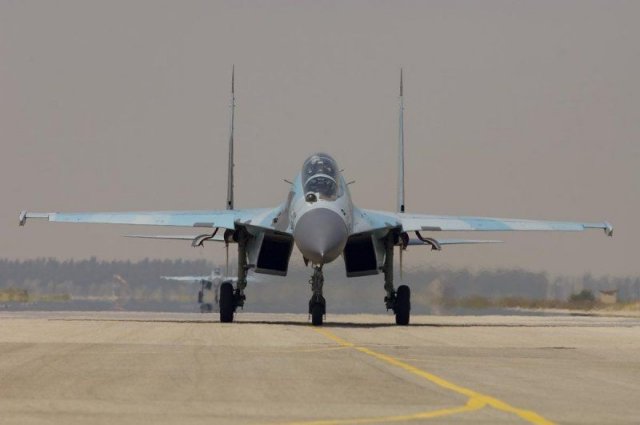Breaking news
Angola to receive first batch of Su-30K fighter aircraft by 2015-end.
| a | |||
| |
|||
World
Aviation Defense & Security News - Angola |
|||
| Angola to receive first batch of Su-30K fighter aircraft by 2015-end | |||
The
Angolan Air Force is to receive the first of 12 upgraded Su-30K
fighter jets from Russia this year, with deliveries set to
conclude in late 2016 or early 2017, reported defenceWeb yesterday. According
to IHS Janes, a batch of fighters would be upgraded this year. They are
being worked on at the 558th Aviation Repair Plant at Baranovichi in Belarus. |
|||
In
October 2013 it was reported that Angola had purchased 18 former Indian
Air Force Su-30Ks
from Russian state arms exporter Rosoboronexport as part of a $1 billion
arms deal involving the fighters, spares and other hardware. However,
in February last year Irkut Corporation clarified that only 12 aircraft
were involved in the deal.
The aircraft were formerly operated by the Indian Air Force, which has ordered more than 200 Su-30MKIs in a number of batches. The early models delivered were basic aircraft without features like canards and thrust vector controls, and it is these 18 early model aircraft (ten Su-30MK and eight Su-30K fighters delivered between May 1997 and December 1999) that were returned to Russia and replaced with more advanced Su-30MKIs. India had intended to upgrade these early aircraft but instead used them as part-exchange for new aircraft. According to Air Forces Daily, they were retired in 2006 and sent to the 558th Aircraft Repair Plant at Baranovichi in Belarus between August and November 2011. They remain at Baranovichi as the property of Irkut Corporation, which said the remaining six will be sold to another country. The Angolan Air Force currently flies around half a dozen Su-27s, out of 18 originally delivered. It also has other Sukhoi aircraft in its inventory, notably the Su-22 and Su-24. Angola is ramping
up defence spending, with its military expenditure projected to increase
from the current $6.5 billion to $13 billion by 2019 due to increased
demand for border security equipment, fighter jets, multi-role aircraft,
helicopters, navy vessels and unmanned aerial vehicles (UAVs). |
|||




















